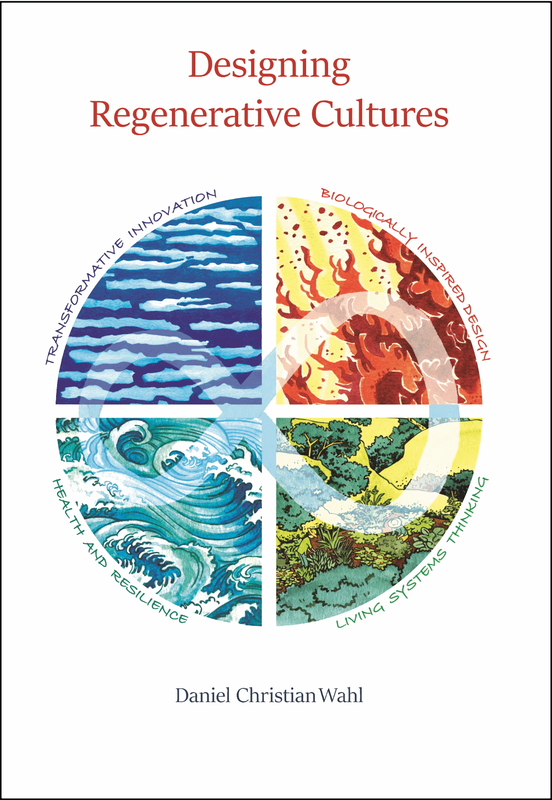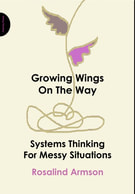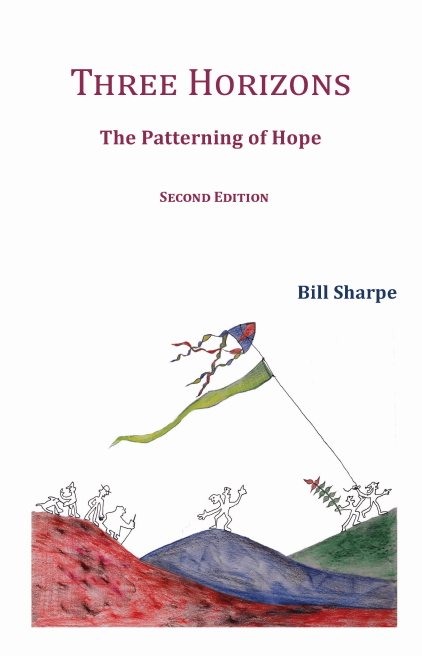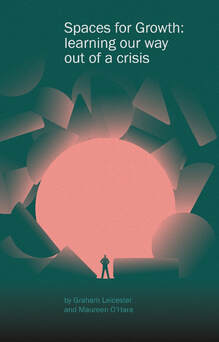Managing Possible FuturesTo think about, and plan for, the future requires a broad awareness of systems and context. One of our authors, Bill Sharpe, urges us to reverse our self-centred habit of seeing a world of stable things to which we bring creativity and change. Rather, he says, we need "to view the world as continuously producing newness, within which we create patterns of relative stability.” Likewise, author Daniel Wahl reminds us of our invariably mistaken belief that we have “understood” the system, and the problems this inevitably causes.
Triarchy titles in this area have information, advice, experience and encouragement for organisations, governments, society and individuals as they contemplate possible futures. |
Key Managing Possible Futures titles ...
|
EXPLORE ... |
|
Designing Regenerative Cultures ~ Daniel Christian Wahl
An impressive and wide-ranging analysis of what’s wrong with our societies, organizations, ideologies, worldviews and cultures – and how to put them right. Covering the finance system, agriculture, design, ecology, economy, sustainability, organisations and society at large, in this remarkable book, Daniel Wahl explores ways in which we can reframe and understand the crises that we currently face and explores how we can live our way into the future. Flourish: Design Paradigms for Our Planetary Emergency ~ Sarah Ichioka and Michael Pawlyn
By looking deeply into the web of life, and drawing inspiration from diverse cultural traditions and perspectives, this book proposes six paradigm shifts that would transform how we construct, design and manage the built environment. These include:
Growing Wings on the Way: Systems Thinking for Messy Situations ~ Rosalind Armson
This book is about dealing with messes. Sometimes known as 'wicked problems', messes (or messy situations) are fairly easy to spot, whether they be the healthcare system in your country; dealing with a family break-up; exploring change, and making it happen, in your organisation; or worrying about how to look after your elderly parents. This book offers a range of ways to approach these situations and unravel them. Small Arcs of Larger Circles: Framing through other patterns ~
Nora Bateson This is an important first collection of essays, reflections and poems by Nora Bateson, the noted research designer, film-maker, writer and lecturer. The book offers important advice and new thinking on issues like immigration, systems thinking, new economic and financial models, future thinking and strategic planning, sustainability and governmental ethics, agency in organizational leadership, the education system and organizational governance. Strategic Foresight: Learning from the Future ~ Patricia Lustig
Strategic Foresight is a set of skills and tools used to explore potential futures, so that you can plan for and take advantage of them. This is a practical (field) guide to foresight and foresight tools for leaders in business, the public sector and NGOs, to aid their practice in strategy, decision making and change. Revised and fully updated in August 2017, with an important new section on Scenario Tools and Scenario Planning. Three Horizons: The Patterning of Hope (2nd Edition) ~ Bill Sharpe
Three Horizons is a simple and intuitive framework for thinking about the future. The framework explains how people often manage to disagree so violently about their visions of the future and how to achieve them - and it offers a practical way to begin constructive conversations about the future at home, in organisations and in society at large. Includes practical case studies of situations where the framework has been used to promote conversations and achieve consensus in the field of innovation and future planning. |
The Idioticon
You might also be interested in our other subject areas ...
|
Also ...
Our partner, International Futures Forum (IFF), has a number of other titles in this area, notably:
- Transformative Innovation - An innovation pocketbook for the public, social, cultural & civic sector.
- Ready for Anything which explains how to use the IFF World Game to think about key aspects of sustainability in all long-term future planning
- Dancing at the Edge, which looks at the qualities and competencies that we need from 'Persons of Tomorrow' to help us navigate the choppy waters ahead.
Planning for The Future

Jay Ogilvy
Planning for the future is also a highly technical matter and one of the longest-established and highly valued approaches is Scenario Planning. Facing the Fold brings together a collection of the best essays on the subject by one of its leading proponents, James (Jay) Ogilvy.
Scenario Planning is one of several techniques discussed by Stephen Millett in his guide to forecasting and planning. Managing the Future offers a straightforward and pragmatic approach to strategic planning. It takes an honest look at the limitations of forecasting, and shows how managers can best use a variety of futuring methods, including scenarios, horizon scanning and trend monitoring.
Strategic Foresight introduces a systemic approach to thinking about the future for any organisation - and a toolkit of different techniques. It is a practical (field) guide to foresight and foresight tools for leaders in business, the public sector and NGOs, to aid their practice in strategy, decision making and change.
Scenario Planning is one of several techniques discussed by Stephen Millett in his guide to forecasting and planning. Managing the Future offers a straightforward and pragmatic approach to strategic planning. It takes an honest look at the limitations of forecasting, and shows how managers can best use a variety of futuring methods, including scenarios, horizon scanning and trend monitoring.
Strategic Foresight introduces a systemic approach to thinking about the future for any organisation - and a toolkit of different techniques. It is a practical (field) guide to foresight and foresight tools for leaders in business, the public sector and NGOs, to aid their practice in strategy, decision making and change.
Buy these 3 titles together for just £30Buy Managing the Future, Facing the Fold and Strategic Foresight (combined list price £55) for just £30. Use the order box below:
|
All Triarchy's Managing Possible Futures titles ...
Adventures in Complexity
Dancing at the Edge
Designing Regenerative Cultures
Economies of Life
Facing the Fold
Growing Wings on the Way
Humanising Healthcare
In Search of the Missing Elephant
Napier Collyns
Managing the Future
Ready for Anything
Small Arcs of Larger Circles
Strategic Foresight
Ten Things to do in a Conceptual Emergency
The Future of the Mind
Three Horizons: The Patterning of Hope
Thrivability
Transformative Innovation
Transformative Innovation in Education
Dancing at the Edge
Designing Regenerative Cultures
Economies of Life
Facing the Fold
Growing Wings on the Way
Humanising Healthcare
In Search of the Missing Elephant
Napier Collyns
Managing the Future
Ready for Anything
Small Arcs of Larger Circles
Strategic Foresight
Ten Things to do in a Conceptual Emergency
The Future of the Mind
Three Horizons: The Patterning of Hope
Thrivability
Transformative Innovation
Transformative Innovation in Education









